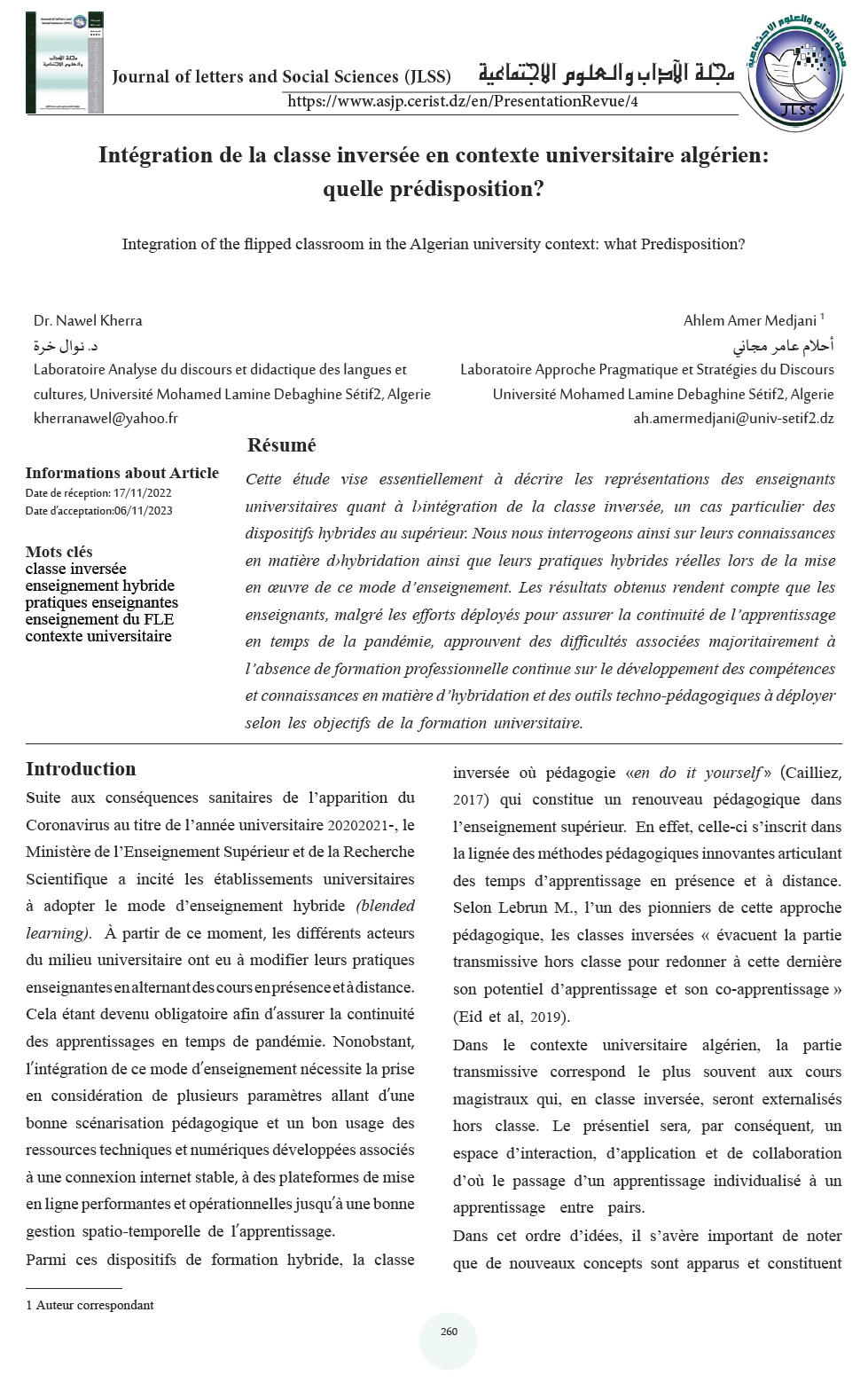Integration of the flipped classroom in the Algerian university context: what Predisposition?
Information about the Article: Date of receipt: 11/17/2022 ***** Date of acceptance: 06/11/2023
Keywords:
English
flipped classroom, blended learning, teaching practices, teaching of French as a foreign language, university contextالعربية
التعليم المنعكس، التعليم المزدوج، ممارسات الأساتذة، تعليم اللغة الفرنسية، المحيط الجامعيFrançais
classe inversée, enseignement hybride, pratiques enseignantes, enseignement du FLE, contexte universitaireAbstract
English
Our objective is to describe the perceptions of FLE teachers on the implementation of the flipped classroom, a particular case of the blended learning in the university context. We thus wonder about their real hybrid practices and the difficulties encountered during the integration of this mode of teaching. The results obtained show that teachers, despite the efforts to ensure the continuity of learning in times of the pandemic, approve of the difficulties associated mainly with the lack of continuous professional training on the development of skills and knowledge in terms of blended learning and technological tools - pedagogical to be deployed according to the objectives of the university training.
العربية
تهدف هذه الدراسة الميدانية إلى وصف تصورات أساتذة اللغة الفرنسية حول إدراج نظرية التعليم المنعكس والذي يمثل حالة خاصة من التعليم المزدوج في المحيط الجامعي. لذلك نتساءل عن ممارساتهم التعليمية الحقيقية أثناء تنفيذ هذا النمط من التدريس. تظهر النتائج التي تم الحصول عليها أن الأساتذة، على الرغم من الجهود المبذولة لضمان استمرارية التعليم خاصة خلال فترة الوباء، يواجهون صعوبات مرتبطة بشكل أساسي بنقص التدريب المهني المستمر على تطوير المهارات والمعرفة فيما يخص التعليم الهجين والأدوات التكنولوجية وفق أهداف التدريب الجامعي.
Français
Cette étude vise essentiellement à décrire les représentations des enseignants universitaires quant à l›intégration de la classe inversée, un cas particulier des dispositifs hybrides au supérieur. Nous nous interrogeons ainsi sur leurs connaissances en matière d›hybridation ainsi que leurs pratiques hybrides réelles lors de la mise en œuvre de ce mode d’enseignement. Les résultats obtenus rendent compte que les enseignants, malgré les efforts déployés pour assurer la continuité de l’apprentissage en temps de la pandémie, approuvent des difficultés associées majoritairement à l’absence de formation professionnelle continue sur le développement des compétences et connaissances en matière d’hybridation et des outils techno-pédagogiques à déployer selon les objectifs de la formation universitaire.

